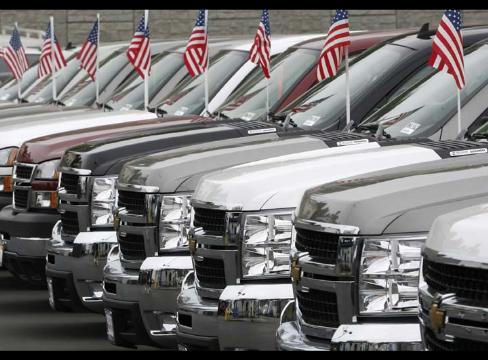Uncertain future for US car industry as bail-out collapses
 Washington - A last-ditch effort to pass an emergency loan that would resuscitate the ailing US car industry fell apart late Thursday after negotiations collapsed in the Senate.
Washington - A last-ditch effort to pass an emergency loan that would resuscitate the ailing US car industry fell apart late Thursday after negotiations collapsed in the Senate.
After hours of bargaining, Republicans and Democrats failed to agree on a compromise deal.
The bone of contention was the powerful United Auto Workers (UAW) union's refusal to agree to Republican demands for wage cuts and reduction in labour costs to the level of Japanese competitors operating in the US.
Republicans were insistent on wages and total labour costs of the Big Three Detroit carmakers reaching parity by next year. While the UAW has agreed to reopen talks on labour contracts, Democrats would not accept the tough timetable.
"We have worked and worked and ... we're not going to get to the finish line," Senate Majority Leader Harry Reid, a Democrat, said before the vote. "That's just the way it is. There's too much difference between the two sides."
The vote on ending the debate was 52 in favour and 35 against - falling far short of the 60 votes required to advance the legislation.
"It's over with. I dread looking at Wall Street tomorrow (Friday). It's not going to be a pleasant sight," Reid said, later adding that there would be "no more work" on the bail-out until the "reconvening of the new Congress next year."
The fractured negotiations leave the fate of two of Detroit's Big Three carmakers, General Motors Corp and Chrysler LLC, uncertain.
Asian stocks tumbled Friday, and Honda Motor Co and Nissan Motor Co dropped more than 11 per cent over worries that the failure of GM and Chrysler would impact suppliers who also serve the Asian car industry. Denso Corp, the world's largest maker of car parts, plunged 10 per cent.
Stocks in Japan dropped sharply Friday, with the benchmark Nikkei 225 Stock Average closing down 484.68 points, or 5.56 per cent, at 8,235.87.
The news also led to the largest drop in the dollar against the yen in 13 years, dealing a further blow to Japanese exporters.
GM said it was "deeply disappointed" that an agreement could not be reached in the Senate and that it would "assess all of our options to continue our restructuring and to obtain the means to weather the current economic crisis."
While GM and Chrysler have said they will not survive without federal aid, Ford Motor Co said it could manage without the funds. Ford still joined the bail-out, fearing it would be in greater trouble if one of its competitors fails.
Reid said it was now up to President George W Bush to provide assistance to the carmakers from the already approved 700-billion- dollar bail-out fund for the financial sector.
The Bush administration "will evaluate our options in light of the breakdown in Congress," White House spokesman Tony Fratto was quoted as saying by Bloomberg financial news agency.
The funds would have to come from the Treasury, as Federal Reserve chief Ben Bernanke expressed his reluctance earlier this week to use the central bank's emergency loan facility for the carmakers.
The mood in the Senate was emotional, tense and angry. "Millions of Americans, not only the autoworkers, but people who sell cars, car dealerships, people who work on cars, are going to be directly impacted," Reid said. "It's going to be a very, very bad Christmas for a lot of people."
Democrat Christopher Dodd, who led the negotiations, said: "More than saddened, I'm worried this evening about what we're doing with an iconic industry. In the midst of deeply troubling economic times we are going to add to that substantially."
Reid accused Republicans of failing to act, as a result of which "three million Americans are more likely ... to lose their jobs."
He said: "Republicans may think that rejecting this legislation sent a message to the auto industry. Instead, they sent a message to every single American that they are more interested in settling scores than solving problems."
The House of Representatives had approved the 14-billion-dollar emergency loan Wednesday night, imposing strict oversight rules in exchange for keeping GM and Chrysler out of bankruptcy at least until April.
Earlier Thursday, president-elect Barack Obama called on Congress to support the loan. "At this moment of great challenge for our economy, we cannot simply stand by and watch this industry collapse."
The bill would have created a White House-appointed "car czar" who would oversee the companies' restructuring and have the authority to revoke the loan by March 31 if not enough progress was being made.
Bush's administration backed the deal passed by the House, but the outgoing president had limited clout with his fellow-Republican legislators.
The carmakers argued an emergency "bridge loan" was needed to weather the US recession, which has sent car sales to a 25-year-low in the past two months.
But many lawmakers blame the industry's struggles on a failure to streamline production and cut costs over the past decade as foreign competitors gained ground in the US market. (dpa)